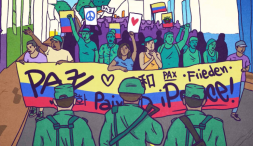This article in the Journal of Humanitarian Affairs reflects on the challenges and opportunities of collaboration between artists and academics in making the animation ‘Colombia’s Broken Peace’.

We eradicated coca: now what?
This digital report highlights the personal experiences of some of Colombia’s “substitution farmers” who eradicated their illicit coca crops as part of the Peace Agreement’s substitution programme, but are still waiting for the state to deliver what was promised to them.

Voices from the borderlands 2022
Our flagship report, based on a collection of life stories that offer insights into how illicit drugs, violence and conflict, poverty and development, and insecurity and resilience are entangled in the everyday lives of people in the borderlands.
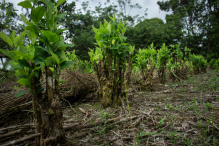
Spatial borderland biography: Colombia
Spatial data on Colombian borderlands, including borders, narcotics, infrastructure and agriculture, available via UK Data Service.

“Everyone here feels that they have been let down by the government.”
Audio Audio translationQuestion: When you decided to take out the coca as part of this programme, what was your motivation to do so, why did you make the decision?Answer: On …
Continue reading ““Everyone here feels that they have been let down by the government.””

“If the PNIS had been a reliable programme, there wouldn’t be any more coca.”
In this area of Tumaco, characterised by its coconut production, the programme has seen serious delays. As well as the common problems (delayed payments, suspensions, etc), these beneficiaries never received …
Continue reading ““If the PNIS had been a reliable programme, there wouldn’t be any more coca.””

“We managed to grow this cacao ourselves, all thanks to our hard work and not the government.”
“We went into the substitution programme to eradicate coca, and because you need money to invest in a project here. We needed help, my kids are in secondary school and …

Fish farming project led by women – Guayacana
“Tilapia could be an option, if the government invests money into it.” We went to Lorenzo’s* farm, situated in one of the rural divisions along the Tumaco-Pasto highway. Lorenzo came …
Continue reading “Fish farming project led by women – Guayacana”
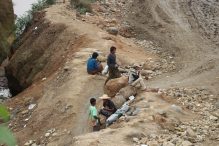
Critique of everyday narco-capitalism
This Third World Quarterly article discusses how capitalism alters life at the nexus of drug production, trade and consumption in the borderlands of Afghanistan, Colombia and Myanmar.
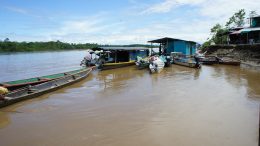
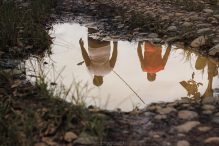


Illicit economies and political opportunity: The case of Colombian paramilitaries (1982-2007)
This Journal of Political Power article discusses four mechanisms through which criminal involvement politicised paramilitaries.

‘Peace with hunger and bullets is very difficult’: PNIS implementation monitoring report
This Working Paper presents findings from the second survey of participants in Colombia’s crop substitution progrmme, carried out in Tumaco in 2021

Mangling life trajectories: institutionalized calamity and illegal peasants in Colombia
This Third World Quarterly article discusses the institutionalization of calamity – in the form of fumigation and exposure to lethal violence – and its consequences over coca peasants and workers in Colombia.

Archiving and sharing data from the Drugs and (dis)order research project
In this presentation, Veerle Van den Eynden, Data Manager outlines how data from the research is being archived and shared.

La Paz Incumplida De Colombia
Esta animación explora las historias de comunidades que viven en las fronteras colombianas a través de la historia de dos personajes, Roger, un liner social afrocolombiano, y Joanna, una líder campesina.

Colombia’s Broken Peace
This animation tells the story of Roger, an Afro-Colombian activist, and Joanna, a peasant farmer, as they navigate lives impacted by conflict and the illicit drug economy in Colombia’s borderlands.

Militias at the margins: implications for post-war stabilisation
Militias are often long-term political actors of post-war frontier areas. central to how states and markets function. What does this imply those making and implementing security policies?

Drugs & (dis)order Policy Lab: An experiment in sustained critical engagement between researchers and policymakers
This working paper shares reflections from an ongoing conversation between researchers and policy stakeholders on drugs, development and peacebuilding policy.

